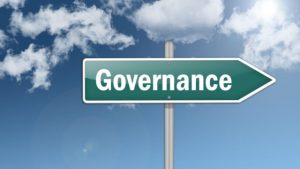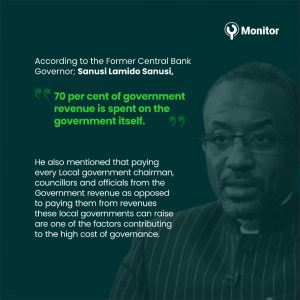- Have any questions?
- [email protected]
High Cost of Governance: What is There to Know?

Fueling Nigeria’s future through investment in youths
19 March 2021
Policy Recommendations To Reduce The High Cost of Governance in Nigeria
19 March 2021It is indeed worrying that despite the “not-so-good” state of things in Nigeria and the numerous plights that need to be attended to with a fraction of the government revenues, it has become very disheartening to see that most of the government expenditure is seen going into unnecessary allocations, allowances and salaries; very much avoidable expenses that can either be cut out totally or reduced.

On a fair note, government expenditure that is quite on the high side should have some cost-effectiveness to it—something productive to show as a product of the high cost. The high cost of governance in Nigeria has been a debatable issue for several years, yet no specific and yielding solution has been provided.
According to the Former Central Bank Governor; Sanusi Lamido Sanusi, “70 per cent of government revenue is spent on government itself”. He also mentioned that paying every Local government council chairperson, councillors and officials from the Government revenue as opposed to paying them from revenues these local governments can raise are one of the factors contributing to the high cost of governance.

He traced the high price of governance problem to the Nigerian constitution that allows under the principle of federal character that state resources and jobs be allocated to each of the states.
What is There to Know?
The single treasury account (proposed in 2015 by the Jonathan administration and implemented by the Buhari administration) to reduce the governance cost was said to be a measure to regulate funds inflow from all government agencies into the Central Bank’s single account and also to address funds mismanagement.
The Federal Minister of Finance, Budget and National Planning, Zainab Ahmed, while signing the memorandum of understanding on the Treasury Single Account (TSA) with the Republic of Gambia, mentioned that the Nigerian Government has been saving about 45billion naira monthly since the supposed implementation of the TSA. With all these developments, however, the government has hardly achieved the overall goal of preventing corruption and putting an end to mismanagement of resources.
There have been talks about taking actions to reduce government expenditure and cut the cost in governance; however, tenure after tenure, after each promise made to cut down on expenditure, the exact opposite seems to be what usually happens—an increase in government expenditure and ridiculous, avoidable spending on allowances and salaries especially.
One of the reasons why the tussle for political positions in Nigeria are similar to a “do or die affair” is because of the eagerness to get the seat for enormous salaries in return. Just like Sanusi Lamido Sanusi had earlier established about Local Government Chairmen and their Vices having several councillors that all have to be paid hefty amounts of money, Governors appoint several aides that get paid so much. Channelling so much of the Country’s funds to the wrong places when this wasteful spending can easily be avoided and stopped. “The public sector should under no circumstance be seen as a vehicle for wasteful spending on large retinues of appointees”.
Recommendations
- Cutting avoidable costs (From allocations, allowances and salaries); otherwise, the country will sink and dwindle because of misplaced priorities.
- Effectively implementing all proposals and promises made as regards cutting the cost of governance in Nigeria.
- Adjusting budgets and expenditures to fit into one without wasteful spending.
- Reducing as much as possible the number of unnecessary aides and assistants, and appointees. Embracing a mindset of “if it’s not important, it shouldn’t be there” would go a very long way in cutting costs that could be channelled into important, yielding and productive endeavours or used to pay off debts even.
Generally, proper, regulated and principled spending into the right places will do the bulk of good for the Country, the economy, the people and Governance as a whole.

